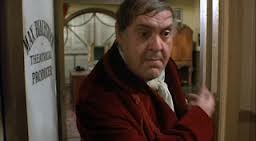When we talk about building vibrant and welcoming communities we put the discovery of people’s gifts and talents at the heart of the process. The discovery of these however, provides us with only half the story – when we couple these with finding out people’s passions, interests – what they really care about – then these people can become empowered. What one earth has this got to do with New Year’s Resolutions? I’ll try to explain…

On the 1st January, I received a number of texts from well-wishing friends and family, asking what New Year’s resolutions I had made for 2015. The problem was that I didn’t really make any. The last one I achieved was 2 years ago, which was learning how to do cryptic crosswords.
Most resolutions I heard from them were things like ‘save money’, ‘lose weight’, ‘get fit’, and although the sentiment is admirable, it is important to ask, through all of this, where is the enjoyment? Why do we frame the resolutions we as punishments with vague, unending timeframes?
Could we be encouraged to put at the top of our resolutions to do something this year, that we really love doing or really care about? Rather than ‘save money’ we could say ‘join a writer’s group’ or instead of ‘lose weight’ we could say, ‘have people round for dinner’, or instead or get fit, maybe ‘play football’ or play a round of golf, go to the beach, ride a bike, join a choir etc.!
In terms of our own wellbeing, there is evidence to say that doing the things we enjoy improves health, especially if it is with other people. It is no surprise that research has happiness being linked to a reduced risk of death, and wellbeing linked to physical health such as lower blood pressure. Doing the things that we enjoy, helps us to enjoy our lives. This can be even more pronounced when we include others because as humans, we are naturally social creatures. When we connect with other people around an interest, we build our social networks, and this improves our happiness.
So receiving the texts I considered a conversation I had with a family member last year who had to take 8 weeks off sick after a heart attack. Following Doctor’s orders, this person had begun to change diet, do a little more exercise, get more sleep etc. but when the conversation carried on we discovered how little ‘down-time’ they gave themselves each week to do the things that they truly enjoyed – cycling and playing guitar (not at the same time obviously!). What was interesting is that now, that person has not only begun to spend time each week doing these things, but through this, has discovered new social connections within their community, as well as becoming involved in neighbourhood issues, sharing their gifts and skills with others.

So when we consider the year ahead, lets consider the things we love to do so much that we can just get lost in them, and how we can do this with other people. Connecting with others this way can shape communities in unpredictable ways, and who knows, the benefits might last longer than the ‘get fit’ programme we all started in January and dropped out of in Feb!








